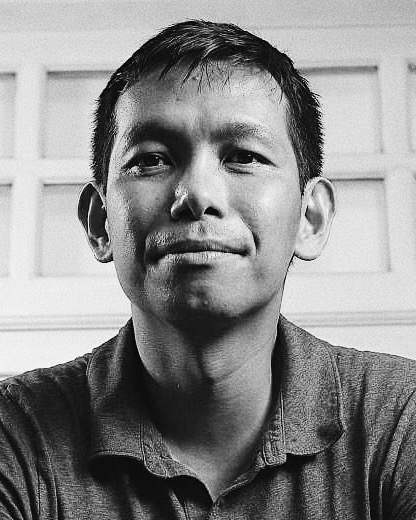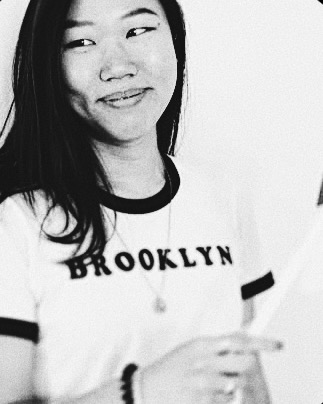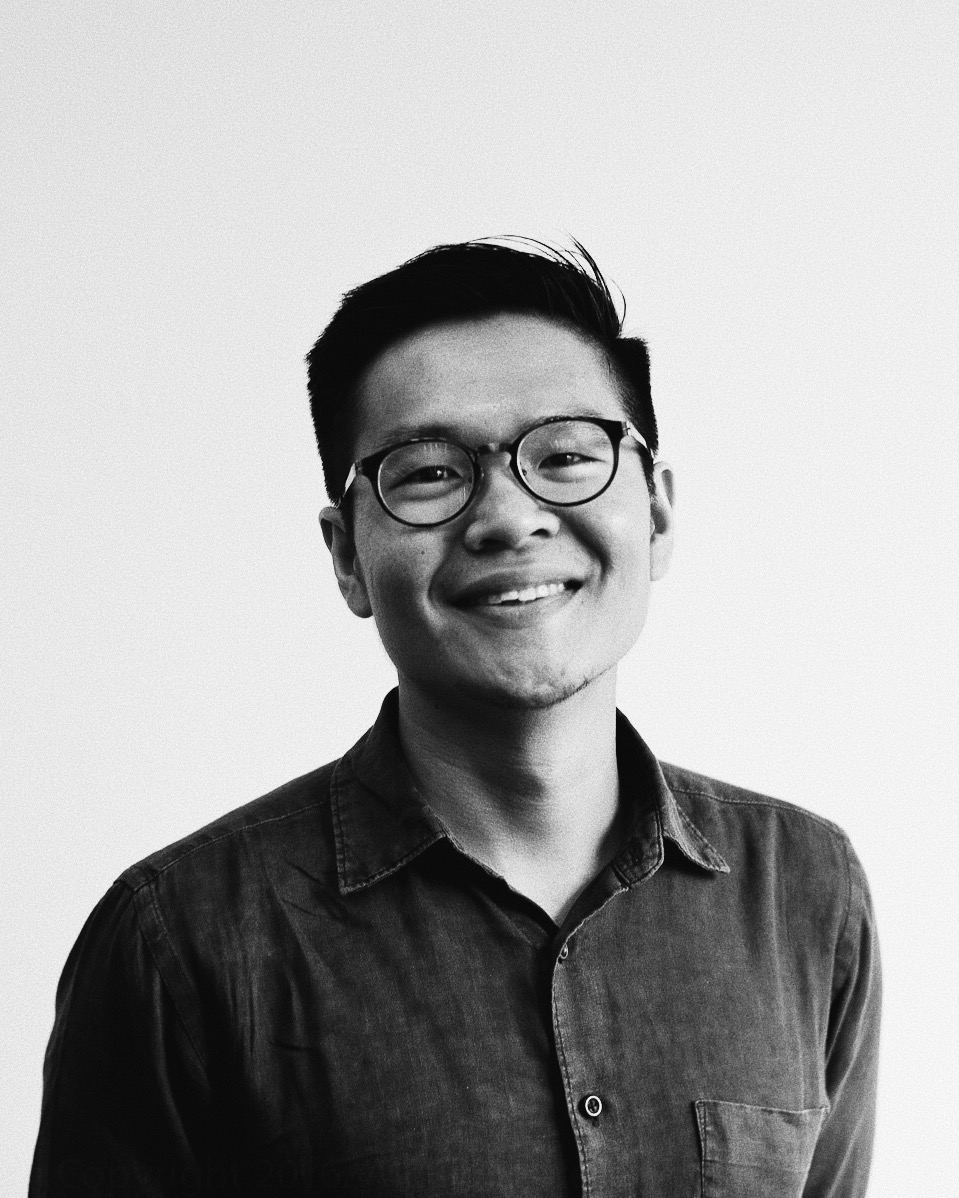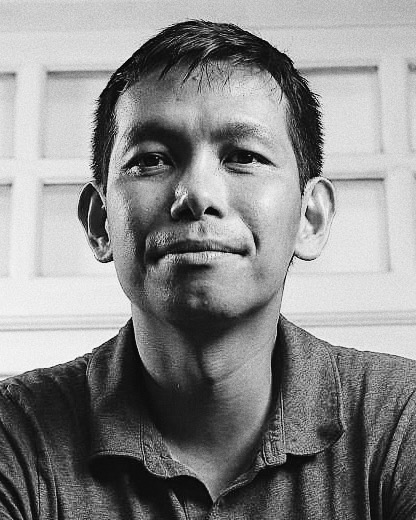The sophomore edition of the Hawker Prize for Southeast Asian Poetry received a highly competitive slate of poems from all around the world; out of all of them, poems published by OF ZOOS, Cha: An Asian Literary Journal, QLRS and Singapore Unbound’s SP BLog nabbed a total of $2500 and one Honourable Mention for their contributors.
To highlight their achievements and dedication to publishing quality poetry, the staff at Sing Lit Station interview editors from two of the winning journals. We’ve also collected the winning poems here.
“The Spare Parts Cycle” by Margaret Devadason, nominated by editors Kimberley Lim and Tse Hao Guang, was awarded First Place in the 2019 Hawker Prize—a poem so ambitious and so large, it had to be made into a .pdf for our website.
Sing Lit Station's Klarissa Schmitt corresponds with the OF ZOOS representatives about their win.
KS I thought “The Spare Parts Cycle” was a beautiful poem, and I’m interested to know your thoughts on it as well — what about “The Spare Parts Cycle” made you guys nominate it for the Hawker Prize?
KL There was something visceral about the work that just gripped me. Conceptually, the poem was already impressive—Margaret wrote "The Spare Parts Cycle" based off our 2018 call to "finish" another poet's "unfinished" work (Jack Xi's "look in the mirror and write a self-portrait" prompt) and she approached it in a fascinating way, by deconstructing the limbs and joints of language and dissecting herself into spare parts that could be reconstituted and then broken and then (artificially?) built together again, like the shards of a shattered mirror pieced together.
The end result is a "self-portrait" that reflects different angles of a person who is trying, trying, trying to use language to come to terms with a variety of things—including the self as subject in relation to the object of the "he" or the "boy". Or perhaps it's the other way round: the "he" as subject and the violence in his verbs towards the object of the self. I'm referring to my favourite "spare part": "iv. locatives". Reading that section—its repetitive mantra of "he held your hands and..." and its ingenious use of locatives to modify meaning in sometimes shocking ways—was what sold the poem for me! I stopped thinking about the conceit of the poem or the poet's intentions, and I just sank into the power of her language, expressed so simply and sparingly with such great effect.
HG Where many writers tend to be either anxiously searching for a personal style or complacently writing the same poem over and over again, Margaret seems to have successfully walked the narrow path of writing with a distinct voice while avoiding sameness. The poems already know what they want to do, and know that they have distinct ways of doing things, different even from each other. That as you can imagine is very, very rare.
“The Spare Parts Cycle” does this in miniature, each part a different species belonging to the same rare genus. My favourite is “vi. conditional clauses”. It plays with the list poem while reminding me in an oblique way of the improv game "new choice" or "quick change". The improv character changes his mind each time a bell rings, like the different renditions of sentences in each stanza of the poem. The repetitions are not merely formalities but contribute to a deep questioning of self and an investigation of death and transformation. In short it manages to be personal while asking huge and important questions.
KS In your opinion, what role does poetry play in Singapore? How much does poetry influence your own lives?
KL I've been based in America for the past ten years, and so my understanding of the poetry scene in Singapore is limited to my participation in it from a far-off place. OF ZOOS is, as its mission statement expresses, a literary journal for "Singaporeans and everyone else." I'm also involved in Singapore Unbound, a literary nonprofit based in New York City that provides a meeting place for Singaporean and American literary dialogue, ideas, and commentary.
So, speaking from my point of view, I'd say poetry in Singapore has the power of transnationality. In a city-state often touted as a global hub, why shouldn't our words have the same moving power as our industries and businesses? I'm not saying that Singaporean poetry needs to be recognised or awarded internationally in order for it to be of any merit; I'm suggesting the opposite: that poetry made in Singapore has global merit that can be exported as an influence beyond its borders. It's not, "We want the world to see who we are" but rather: "Hey, world, this is us. Are you tuned in yet?"
HG In many ways Kim described an ideal or near-ideal role for poetry. I think poetry's relative prevalence here is on one hand a continuation of Singapore's various cultures prizing the form of poetry. It also speaks to a need to escape the narrative pull of the everyday in a way that is nonetheless convenient and can fit into one's routine. That's why SingPoWriMo is so popular, and in this sense I believe poetry is an effect of some contradictory tendencies in Singapore's modern culture. It functions as a way to assert and express oneself in a culture where assertion and expression are fraught with difficulty, not least that of the burden to be legible to a Singaporean audience or even smaller, more particular communities.
For me poetry from Singapore becomes more interesting once we start to forget the role of poetry in Singapore, and I find abolishing both cultural cringe and the mindset that local means supportable helps me to honestly assess, enjoy and be influenced by poetry.
KS Could you tell us a little more about how OF ZOOS began, and the meaning behind the name of the journal?
KL Haha, the name of the journal? Well, the story is in 2012 I was in my third year at an American university, where I was interning at a literary magazine run by students. When I saw how "easy" (quotation marks emphasised!) it seemed for a couple of people to put together a journal—they just needed a website, a group of submission readers, and audience, and a name—I thought, Why can't I do that, too?
I came up with a mission statement: we'd publish daring, different poetry (or works in any media format that have a poetic sensibility) that responded to a prompt (ideally one that would challenge the way they write). Then I came up with a name: "zoos" to denote the crazy zoological diversity and variety of people, ideas, and writing floating about. Then I spent ten hours on YouTube learning how to code a site.
A few years later, Hao Guang, who had been published in every issue since I'd started, came on board as co-editor, a vital ingredient to the continued success of the journal with his know-how, expertise, passion, leads, and overall gungho-ness. As of now, Hao Guang is based in Singapore while I'm still in America, and together we chat via Facebook message (or at an annual coffee shop meet-up whenever I visit home) to put together OF ZOOS!
HG I was an early enthusiastic submitter to the journal, drawn by Kim's excellent branding of the journal as a quirky portal that didn't take itself too seriously. The ideas for issues were (and I hope are) phenomenal and way more interesting than the usual single word or issue prompts we see in many other journals. Soon enough, Kim asked for some editorial support. Apparently I was the only one foolish enough to volunteer. I like that we run the journal on pure enjoyment. The prize is primarily our effort to extract maximum reward for our writers and we are always pleasantly shocked when the work in it is recognised in any way.
KS Do you think there’s anything that can or should be done to further highlight the importance of local poetry?
HG I believe there is far too little committed examination of poetry at all, let alone Singapore poetry, let alone contemporary Singapore poetry. This is not to say such examination should always look like academic work; reviews over 500 words, discussions of poetics, inter-lingual and translation fora are all modes I'd love to see more of.
KS Apart from pure enjoyment, what else inspires or motivates you guys to keep publishing?
HG I do think we have something different to offer the world of e-journals, let alone those run by Singaporeans. Our commitment to process-based and participatory themes may weed out a lot of mass submitters, but I generally find that those who do submit tend to put more thought into their work and I think we are enriched all around by that. Needless to say, it is also my hope that the journal reminds people that exploring various writing processes is itself worthwhile.
KS What are you most excited for for the future of OF ZOOS? Anything we should keep a lookout for?
HG Our next issue! We've just dropped our latest theme, which is kind of about procedural or computer generated poetry, but is way more broad and flexible, I swear! Here is the call for submissions:
Language is a code. For issue 8.1, OF ZOOS would like to solicit your coded and systematic writings (and/or visuals) in any form, interpretation, or variety—whether via digital processes with a computer or via a physical reference source with the good ole’ brain.
We want principled and procedural poetics, works laid out by laws (that perhaps in turn unravel them), rule-abiding and/or rule-nonconforming writings, disparate building blocks that make up a “whole”, signals and symbols that convey, disrupt, or obscure. How do our modern-day codes generate or inhibit meaning and poetry?
Please send all submissions to ofzooseditor@gmail.com for consideration in issue 8.1 by August 15, 2019. Include your biography and, if you like, a brief description of your work and its genesis.
Singapore Unbound’s nomination of Chris Huntington’s “Lorca (6)”—previously a 3rd Prize winner in SP Blog’s 4th Singapore Poetry Contest—secured the poet an honourable mention in the 2019 Hawker Prize.
Sing Lit Station's Daryl Qilin Yam chats with Jee Leong Koh, the founder of Singapore Unbound, to learn about the story behind his organisation.
DQY I found "Lorca (6)" destabilising, unfamiliar, and deeply, deeply romantic. We also understand from the judge's comments (found on SP Blog) that the poem deals with an "essential loneliness" that pertains to Singapore. How do you think that has come about? What does it mean, to you, to envision a lonely Singapore?
JLK In my reading of the poem, "Lorca (6)" by Chris Huntington is inspired and motivated by the existential loneliness of being a human being and being a writer. The speaker of the poem writes, in such a companionable manner, to a dead writer as if the latter could still take up a pen to reply. I've always thought that a writer's first reader is himself. He writes to himself to hear himself speak, to assuage his loneliness, to fill the blank air with sound. Singapore cannot assuage this existential loneliness; no place or country can, not even Granada, but loneliness in Singapore bears some special features. There is the loneliness inherent in the mindless consumption of things. There is the loneliness resulting from the attenuation of the extended family in space, time, and language. There is the loneliness exaggerated by our nationalistic claim to exceptionalism, instead of connection and collaboration. There is the loneliness born of the destruction of our natural environments. We have the loneliness of both the masters and the slaves.
DQY Singapore Unbound continues to engage its audience via a number of platforms — on top of the SP Blog, there is also the residency in New York and of course the Singapore Poetry Contest. What would you say is the underlying impetus that informs each of these platforms?
JLK To expand the idea of Singapore, to both Singaporeans and non-Singaporeans. Singapore beyond Singapore, so begins our self-description. What can Singapore be if it's not so obsessed with things, success, and status? What if we read for the sake of reading, or write for the sake of writing, or immerse ourselves in art for the consolations that only art can give us? Art for art's sake is a radical call in Singapore, because the country is so completely captured by cynical pragmatism.
DQY Why "Unbound"?
JLK Because the spirit is in chains in Singapore.
DQY What would it take to be free from these chains?
JLK Nothing less than a complete transformation of our current political, economic, social, and cultural arrangements. It's not something that literature can do on its own. Neither is it something that economics can do on its own. What literature can do exceptionally well is to keep reminding us that we are more than our body, that we are of the spirit too. Literature must keep rattling the chains.
DQY Take us through the beginnings of Singapore Unbound: have you always seen yourself as an arts organiser? A producer, a programmer — a curator? I wonder how all these labels and attempts to define what you do sit on top of your existing practice as a poet.
JLK I moved to New York to be a poet. Arts organizing was something that I fell into, not something pre-planned. Singapore Unbound achieved its present clarity of purpose—freedom of expression, equal rights for all—only when the Singapore government banned Tan Pin Pin's documentary about political exiles To Singapore, with Love from public screening and withdrew an arts grant from Sonny Liew's graphic novel The Art of Charlie Chan Hock Chye. Our purpose was strengthened when the government refused to get rid of the anti-LGBTQ law and support equality for all Singaporeans. In protest against these repressive measures, I took the public stand of not applying for any state funding, relying instead on individual donations. In this way, Singapore Unbound has complete autonomy over its literary activities and political actions. We held our third literary festival in NYC last year. Our Second Saturdays Reading Series is in its sixth season. SP Blog (formerly Singapore Poetry) celebrates its sixth birthday in October. We have joined other Singaporean arts and civil society groups on a number of occasions to protest against unfair and anti-democratic actions of the state, such as the imprisonment of artist Seelan Palay for holding a one-man arts performance outside Parliament House.
As for labels, I choose to describe myself as an "organizer," rather than "producer," "programmer," or "curator." An organizer encompasses all the other roles, but, more importantly, the term is closer to labor organizing and political activism. It has affiliations to the working class and other dispossessed peoples. For a long time I have thought of being a poet and an organizer as two different occupations, the former performed as a private obsession, the other as a public duty. Having done both for a while now, I am looking for viable and valid ways to fuse the two. One attempt is my current writing project, which is to write a series of poems about Singaporeans living in America. Since the poems have to deal with the particular facts of life, they necessarily have to deal with race, class, gender, sexual orientation etc.
DQY What have you found most peculiar about the Singaporean-American connection? Are there any "particular facts of life" you'd like to share with us?
JLK I move in a somewhat limited circle of Singaporean writers and creatives in New York City, and so can only speak from that perspective. Nearly all of us in that circle, gay or straight, have a white partner. I am saying this not in judgment, but as a statement of fact. I myself am with a white guy. I think a lot of this has to do with class — sharing similar background, values, aspirations, and concerns. The Singaporean diaspora in America, from where I stand, look by and large like a privileged group: highly educated, immensely mobile, and middle-class. In this we are more like some segments of the Asian diaspora here than like other segments. Undoubtedly, racial bias is also at work, our own biases and other people's biases against us. The racial hierarchy in the gay male community is notorious and is still working its noxious effects.
We have found in America not only our partners, but also encouragement and opportunities for our passions, be they writing, music, ceramics, design, theater, or news. We could have stayed at home in Singapore and enjoyed a materially comfortable life, but most of us found ourselves growing, learning, and flourishing as people and artists here in the extremely competitive, yet tremendously supportive environment. Significantly, the support comes from all over, not just top down. We are with people, cultures, and institutions that assume that the arts are not just important, but worthy of lifelong dedication in both their making and their appreciation. For a small instance, a Math teacher at my school is so voracious a reader that he has probably read more contemporary American literature than any of us in the English department, although none of us are slouches in our reading. I just participated in a poetry conference in NYC that brought together scholars and writers from different disciplines to think about the future of poetry studies. These are "facts of life" too, for me in New York.
DQY What did you make of the Singapore Summit last year, in Sentosa of all places? Did it feature in any of your poems or other writing?
JLK I think it's disgusting the way Singaporean ministers and ordinary citizens treated Trump and Kim as celebrities. At the 3rd biennial Singapore Lit Fest in NYC last year, we organized a panel in conjunction with the summit titled "Singapore: From Non-Alignment to Neutrality" at New York University. The panelists examined critically Singapore's move from solidarity with the Third World to alliance with global capital. There is no such thing as "neutrality," of course.
DQY What principles, would you say, inform your editorial, curatorial process?
JLK A few years ago I heard Itzhak Perlman, the Israeli-American violinist, play at a school benefit. At the very first note, you know you are in the hands of a master. The fullness of the sound, and the nuance. The logic, and also the emotion. The musician, because of childhood polio, in his wheelchair, a modern Philoctetes. In my editorial and curatorial work I am always looking for that sound.
DQY What works were you most proud to publish in the SP Blog?
JLK We have published original works, such as the winning entries for the annual Singapore Poetry contest (open to non-Singaporeans only), of which Chris Huntington's "Lorca (6)" is one. We have also published this wonderful short story about Singapore titled "Call Center" by Nidhi Arora, who lived in Singapore, but is now based in London. More and more, I am feeling proud of our book reviews. They fill a gap in the Singapore literary ecosystem that many people have pointed out. To capitalize on the geographical distance and so gain a more objective view, we have Americans review books by Singaporeans and vice versa. In the past year Jamie Uy has done a tremendous job in editing those book reviews, showing a literary sensitivity and personal touch beyond her years. The books reviews have thrown a spotlight on female authors of color, in particular, a group that we are very happy and honored to serve: Balli Kaur Jaswal, Shubigi Rao, Celina Su, Jing-Jing Lee, Wendy Chin-Tanner, Grace Chia, Yangsze Choo, Judith Huang, Rita Banerjee.
DQY What is in store for the future of Singapore Unbound? What are your hopes and dreams for the organisation?
JLK We have given much love to our new imprint Gaudy Boy, which publishes poetry, fiction, and creative non-fiction by authors of Asian heritage residing anywhere in the world. The co-winners of 1st Gaudy Boy Poetry Book Prize—Lawrence Lacambra Ypil's The Experiment of the Tropics and Jenifer Sang Eun Park's Autobiography of Horse—have received recognition by The Millions and The Paris Review. In the fall, we are releasing The Foley Artist and Other Stories by Filipino American author Ricco Siasoco.
We want to publish exceptional authors that we believe in, and so contribute in our own way to the conversation between Asia and America. The Gaudy Boy team are passionate about our mission: Kimberley Lim, Managing Editor; Judy Luo, Assistant Editor; and Chu Jia Sing, Assistant Publicity Director








